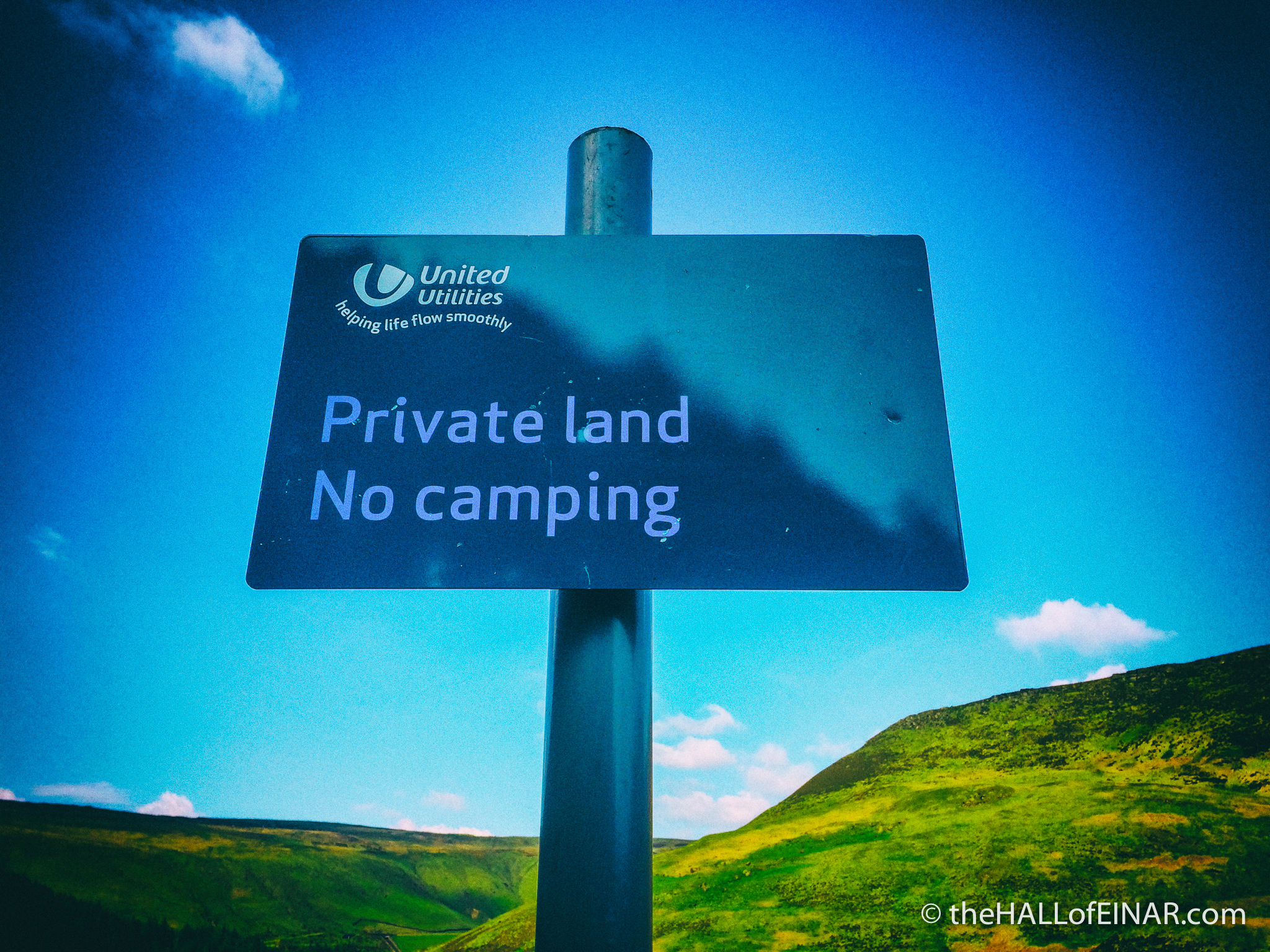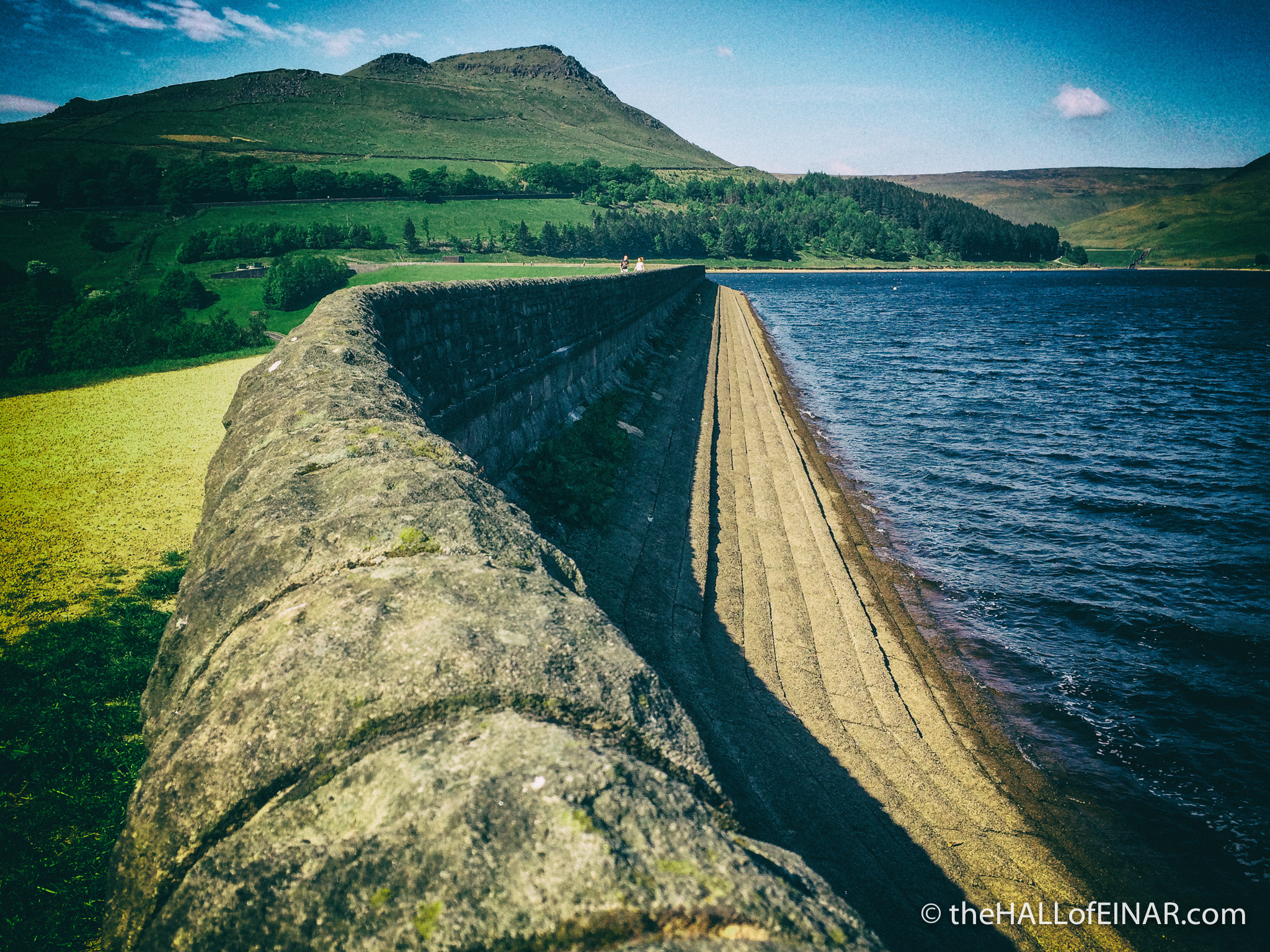United Monopolies – How much are we paying water companies for our wildlife drought?
Can you remember the last time you spent a day without drinking water? Without cleaning your teeth? Without washing your dishes? Without washing yourself? Without using a flushing toilet? If so, that must have been quite some serious depression.
Today I’m walking around Dove Stone Reservoir on Saddleworth Moor.

The Reservoir and its surrounding land is owned by United Utilities, which is keen to emphasise that this is private land with its branded signposts.
We all need water, and in the UK, water is a monopoly service, provided without competition, by nine commercial monopolies. United Utilities is one of those monopolies. It owns 141,000 acres of land which includes Dove Stone Reservoir. The nine water companies own 345,977 acres between them. Its not just commercial monopolies which have a monopoly of our land. As a comparison, the Duke of Buccleuch, owns 240,000 acres, the Duke of Northumberland, 131,000 acres and the Duke of Westminster, 129,000 acres. The 141,000 acres United Utilities owns is the same amount of land owned by Charles Windsor, the man referred to as the Prince of Wales.
The massive land holdings of these commercial monopolies is part of a pattern of unequal land holding in the UK. 70% of Britain’s land is owned by less than 1% of our population, with 160,000 families owning 66% of it. Nearly 1,000 years after the Norman Conquest of 1066, people with Norman surnames like Darcy, Percy, Montgomery and Mandeville, are still at least 10% wealthier than the descendants of the defeated Anglo-Saxons. That was one incredibly successful land grab. Having said that, one of the reasons the Norman Conquest was so easy was because land was so unequally held under the previous Anglo-Saxon regime as well.
Land ownership is still deeply unequal in the UK and that has a significant impact on the sources of power over land use and the very existence of our wildlife.

The amount of land held by water companies could hold a great deal of nature. If the land was managed properly, it would be teeming with nature. While television programmes and magazines obsess about the best way to attract wildlife to your patio, window box or back yard, wealthy landowners are burning, clearing and poisoning huge swathes of our country and managing it for industrial meat production or hunting by driven Grouse shooting. Even more outrageous is that they are being subsidised by taxpayers to do it. Where are our natural forests? Where are our Wild Boar? Where are our Wolves? Where are our Beavers? Where are our Lynx? The Wild Cats? Where are our huge migrating flocks of birds? Where are our Hen Harriers? The Goshawks? The Golden Eagles? They are all extinct, persecuted, hesitantly reintroduced or escaped in tiny remnant pockets of population.
How much are we paying water companies for our wildlife drought? Since the water industry was privatised in 1989, the National Audit Office says household water bills have risen by 40% above inflation. We are paying commercial water companies a premium to suppress our wildlife or lease organised hunting of our wildlife. No amount of greenwashing by environmental non-governmental bodies in their Blueprint for Water can hide it.
What do our water charges pay for? The second-highest paid water company chief executive, according to the GMB, is Steve Mogford, the chief executive of United Utilities, who received £2.3m. His pay has increased by 49% since 2013. The company’s response? “In 2017, his total remuneration was approximately half the average for a FTSE 100 CEO.” Considering that none of his customers have a choice, that they can’t opt out and that the company can’t really fail or go out of business, that doesn’t seem like a particularly strong argument. 3 million homes and 200,000 businesses have to buy water and sewerage services from the commercial for-profit monopoly he runs or they have their supply cut off. There’s nothing they can do about it. Steve Mogford is unflushable.
Here’s what the Annual Report of United Utilities has to say:
“The water industry currently operates within five-year planning cycles known as Asset Management Plan (AMP) periods. Prior to the start of each five-year period, companies submit their business plans which include their projected expenditure to enhance and maintain their assets. Following review of these plans, Ofwat sets the prices each company can charge their customers across the period.”
In other words, for our water ‘industry’, they think: “It’s a no-risk fix, we can’t ever lose our money, our service is essential and we will always be underwritten by the Government.”

As I write I’m looking out at the tiny front garden of my terraced house and thinking what I could do for wildlife with the 141,000 acres United Utilities have. Britain has the land inequality of a so-called third world country and urgently needs a land reform revolution.
I have some Anglo-Saxon words to describe what we should do about it.